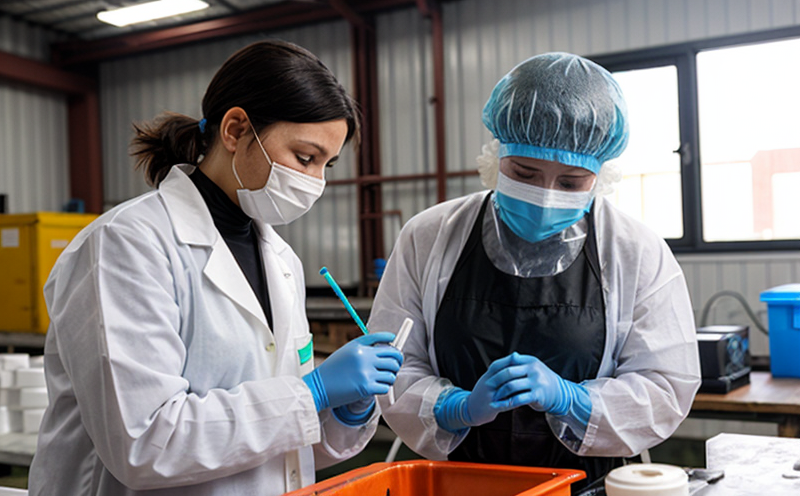EN 13432 Compostability Testing of Recycled Plastics with Nanoparticles
The European standard EN 13432 provides a framework for ensuring that materials and products can be composted in industrial composting facilities. This standard is crucial for the certification of packaging intended to be recycled into compost, which is a key component of sustainable waste management practices.
Incorporating nanomaterials into recycled plastics has gained significant traction due to their enhanced properties such as strength, conductivity, and durability. However, the addition of nanoparticles introduces unique challenges in terms of biodegradability and environmental safety. This is where EN 13432 compliant testing becomes essential.
Our laboratory specializes in conducting comprehensive composting tests according to the requirements set out by EN 13432 for recycled plastics containing nanomaterials. The test involves subjecting samples of these materials to controlled conditions that mimic industrial composting environments, allowing us to assess their ability to break down into non-toxic substances within a specified time frame.
Compliance with this standard ensures that products not only meet environmental regulations but also contribute positively towards circular economy goals. By accurately determining the compostability of recycled plastics containing nanoparticles, we help manufacturers ensure they are producing environmentally friendly materials.
The process begins by carefully preparing test specimens according to ISO standards. Once prepared, these samples undergo rigorous testing under controlled conditions designed to simulate real-world industrial composting scenarios. Our team uses cutting-edge analytical equipment to monitor the breakdown process and determine whether or not the material meets all specified criteria for compostability.
It is important to note that while EN 13432 focuses primarily on biodegradability, it also considers other factors such as disintegration rate, energy recovery potential, and emissions during decomposition. These additional parameters are crucial when dealing with nanomaterials because their small size can significantly affect the overall composting performance.
Our laboratory offers detailed reports that outline every aspect of the testing process, including any deviations from expected outcomes or unexpected challenges encountered. This level of transparency ensures that clients receive comprehensive insights into not only whether their product complies with EN 13432 but also understand how it performs in various composting environments.
Benefits
- Ensures compliance with international standards for industrial compostable materials
- Aids in meeting regulatory requirements and achieving certification
- Promotes sustainable waste management practices by facilitating the recycling of plastics into compost
- Enhances product reputation through verified environmental credentials





